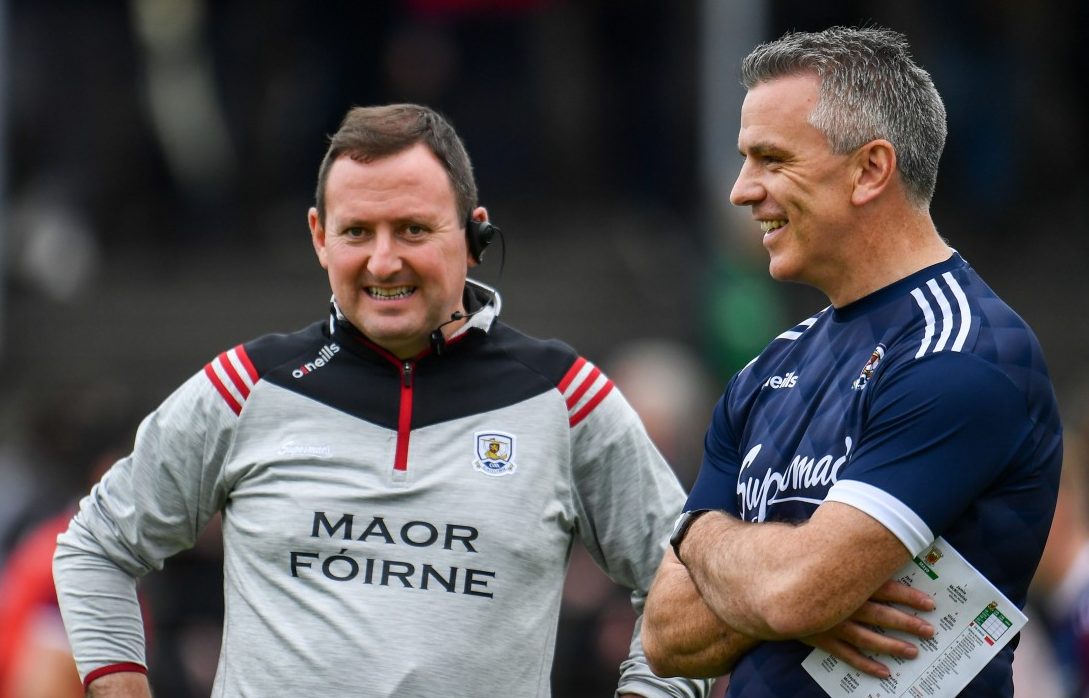THERE is some speculation that the Association is going to have a look at the role of the Maor Foirne in our games.
This follows a number of incidents during the year the most notable being the bizarre sight of Greg Kennedy, the Dublin Maor Foirne, intercepting a Kilkenny short free which could have led to a goal.
Kennedy was handed a four-week ban but Brian Cody was ready at the time to hand him a lot more than that.
Personally, I would welcome such a move and I say that as someone who fulfilled the role both for club and county over the years. I think the field of play should be for the players and the referee.
When the role was introduced in 2006, it was well intentioned and a gallant effort to tidy up our sidelines by reducing the number of pitch encroachments.
We are now at the point of having a rethink because at both club and county level our sidelines are not nearly as organised and disciplined as they should be.
I remember being at a club game in Antrim this year where it seemed to be that every break in play was the green light for the pitch to be filled with mentors, water carriers, physios and anyone else with nothing better to do.
At one point in the game I counted 14 different people on the pitch. Now I know players need to be hydrated but they don’t need a drink every couple of minutes and if they do, they should come to the sideline when there is a break in play.
The Maor Foirne is supposed to enter the field through the substitution zone but I don’t think many do.
The role is supposed to be to pass on instructions to players on the field but more and more I think it is being used for gamesmanship, to break up play, to antagonise and to try and influence the referee.
Although the idea did come from Aussie Rules you don’t see it in many other sports.
When you look at the likes of soccer and rugby only physios and medics are allowed on the field and I think we can learn from that.
Players are so well drilled now they shouldn’t need constant instruction; indeed, the best managers and coaches trust them to make their own decisions during the game.
I actually think we will soon see many of our top managers opting to watch the games from the stands, a la rugby, where the view of proceedings is infinitely better and they can easily pass instructions via headsets to their sideline generals who should be confined to a technical zone.
Davy Fitzgerald flirted with this when on a sideline ban last year and I was a bit surprised to see him come back down to pitch level where it can be harder to get a true sense of the shape of a game.
As teams’ preparations become more and more professional, the use of in-game technology will also come increasingly to the fore and such technology will be easier accessed and analysed away from the pitch side.
The removal of the Maor Foirne role will bring new thinking in terms of communication with teams inevitably finding new ways of transferring information likely to involve players coming to the sideline during breaks to receive the instruction.
Implementing changes at intercounty level should only be the start and I would hope that restrictions would also filter down to the club game at both adult and underage level. I despair when I watch underage games with both sidelines jampacked with assistants and mentors encroaching well onto the playing surface barking instructions supposedly encouraging their own players but often putting them off.
In some cases, such shouting of ‘encouragement’ can be intimidating for the opposition and whilst that may not be the intention, we can’t deny it can often be an unintended consequence. Thirteen and 14-year-olds can be easily put off so we should actively discourage encroachment at every opportunity and support the referees by making it an offence to enter the field of play without his permission.
Many will argue that we are the GAA and such passion on the sideline is part of the game and what sets us apart from other sports but I do think there is a need to move on and look at ways that we can improve the discipline in this area to ensure the only action we are talking about is on the field of play.
This weekend sees the Ulster Club semi-finals with a double header in the Armagh Athletic Grounds. The first game sees the Derry champions Slaughtneil up against the king pins of Armagh, Middletown. Whilst Slaughtneil will be everyone’s favourites for this I do expect Middletown to rattle them but ultimately come up short.
The second semi-final is a tougher one to call with my club Dunloy up against Ballycran of Down. For obvious reasons I will stay away from any sort of prediction as Ballycran need no help from me to psyche themselves up.
A real battle is expected and in line with the theme of column I hope the real action takes place on the pitch.
Receive quality journalism wherever you are, on any device. Keep up to date from the comfort of your own home with a digital subscription.
Any time | Any place | Anywhere












